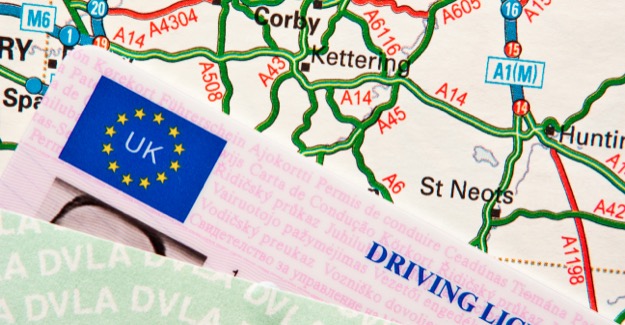Driving test often as important as academic results
Almost one in six jobs requires the applicant to be able to drive.
The RAC Foundation has analysed a snapshot of the government’s employment database and found that of the 847,000 vacancies available in Great Britain in July 2015, 131,000 (15.4%) stated that a vehicle or licence was necessary for the post.
Another 7,700 (1%) of the jobs on the list from the Department for Work and Pensions said that a vehicle or licence would be beneficial or practical.
The professions that required applicants to have the ability to drive were as diverse as: carer, professional driver, cleaner, zoo worker, chef, sales consultant, security guard, business development manager, gymnastics coach, electrician, hairdresser.
The RAC Foundation also looked at the vacancies shown on the England-only Skills Funding Agency’s apprenticeship database in September 2015.
Of the 16,100 situations vacant, 806 (5%) stipulated that applicants must have their own vehicle or at least the ability to drive. Another 1,326 (8%) stated that a vehicle or licence would be beneficial or practical. An additional 508 posts (3%) involved night working.
The research follows on from earlier work by the RAC Foundation which showed that 15.3 million (58%) of workers in England and Wales drive themselves to the ‘office’, while a further 1.4 million (5%) get a lift.
Steve Gooding, director of the RAC Foundation, said:
“We already know that millions of people need to use a car to get to work, but this study shows just how many will also need a car for work.
“Much attention is given to the academic qualifications that teenagers and young adults graduate from school and college with, but this data shows that when it comes to applying for many jobs and training positions the practical skill of being able to drive is often as critical as any GCSE or A level.
“This country relies on millions of nomadic workers who rarely, if ever, sit at a desk and work all hours of the day and night. They include tradespeople, carers and cleaners, and if this economic army is to be kept at full strength then we must ensure that not only is learning to drive affordable but so too is buying and running a car.
“In the past couple of decades there has been a marked decline in the proportion of young people – especially men – holding a driving licence. Yet when asked why they don’t have a licence, most say it is because of the associated costs rather than because they don’t want one.”
ENDS
Contacts:
Philip Gomm – Head of External Communications – RAC Foundation
020 7747 3445 | 07711 776448 | [email protected]
Notes to editors:
The RAC Foundation is a transport policy and research organisation that explores the economic, mobility, safety and environmental issues relating to roads and their users. The Foundation publishes independent and authoritative research with which it promotes informed debate and advocates policy in the interest of the responsible motorist.
The RAC Foundation is a registered charity, number 1002705.
Full car driving licence holders aged 17-20 by gender: England, 1989/91 to 2014. DfT, Table NTS0202:
https://www.gov.uk/government/uploads/system/uploads/attachment_data/file/456250/nts0202.xls
Reasons for not learning to drive by age: England, 2014. DfT, Table NTS0203:
https://www.gov.uk/government/uploads/system/uploads/attachment_data/file/456251/nts0203.xls



